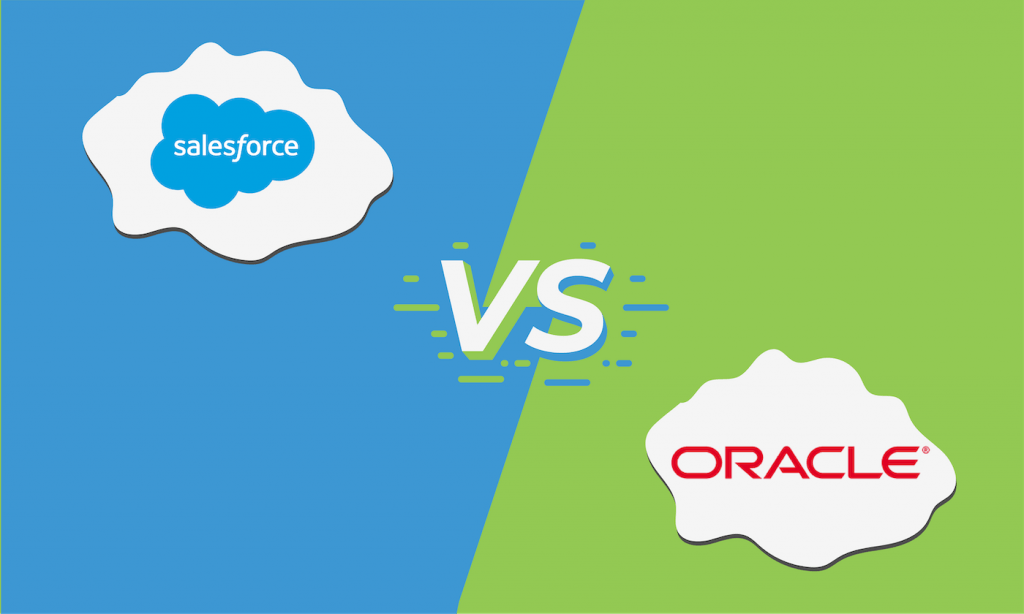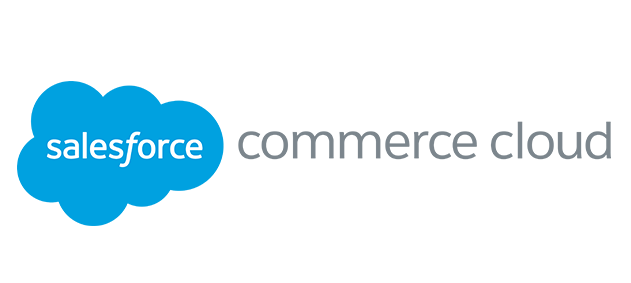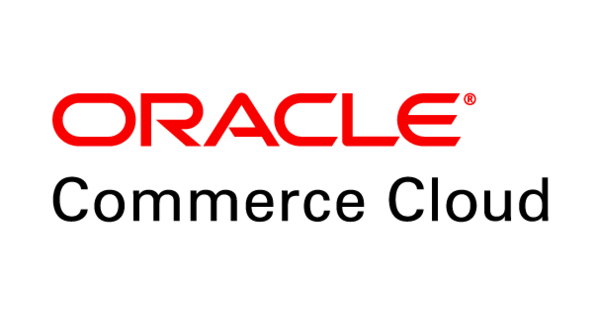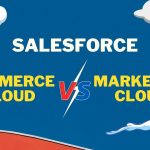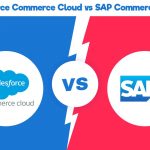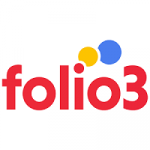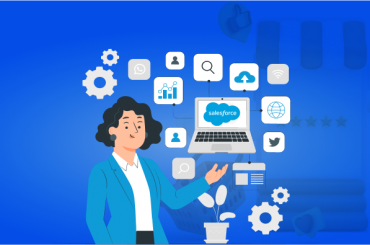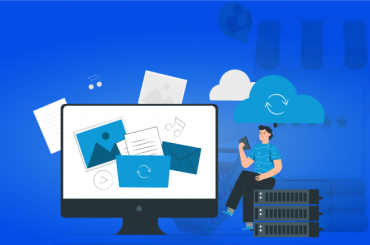Why Choose Oracle Vs Salesforce Commerce: Which Cloud CRM is The Best in 2023
Last Updated | June 16, 2023
Table of Contents
Executive Summary:
In this post, we’ll compare Oracle vs Salesforce as two fiercely competitive CRM suppliers with their fair share of twists and turns.
The comparison of the capabilities of Oracle vs Salesforce is to help you decide which cloud will be best for your company in 2023.
According to our analysis, when it comes to CRM platforms, Salesforce Commerce Cloud development is a better option than Oracle.
There is a reason why so many businesses choose its CRM solution—it has comprehensive capabilities, is available right away, and has an extremely attractive pricing structure.
That does not mean Oracle should be disregarded. Although it is more expensive, it is a powerful CRM platform with many outstanding features and a multitude of integrations.
Let’s start the debate of Oracle vs Salesforce with an overview of individual overview of both.
Oracle vs Salesforce: An In-depth Overview Of Salesforce Commerce Cloud
| Pros Of SFCC | Cons Of SFCC |
| Provides faster execution of ideas for businesses for agile growth | SFCC community is very closed, the users cannot learn from it until they pay for it. |
| Seamlessly upgrades all the new updates | Fast nature feature isn’t niched specific friendly |
| Offers highly customizable features to the clients | Less space for betterment |
| It has an impressive developer community | Solutions required for improvements are expensive |
| It uses the Einstein Artificial Intelligence | Costly and less profitable for smaller businesses |
| It offers Salesforce B2B Commerce Integration and Salesforce B2C Commerce |
Questions about scaling commerce? Read this article Salesforce eCommerce integration and What is Salesforce Commerce Cloud Pricing? The Ultimate guide to having a better understanding of the topic.
Oracle vs Salesforce: An In-depth Overview Of Oracle Commerce
You might also want to read: Salesforce Merchandising
| Pros Of Oracle | Cons Of Oracle |
| Simple scalability | The solution wasn’t EBS compatible when it was first released. |
| Resource provisioning is simple. | It is difficult to integrate other technologies, such as WAF/IDCS, into a system. |
| It may be used by any corporation, even SMEs, enabling them to expand their business. | Sometimes using the platform is hampered by weak internet connections. |
| The workflow has been enhanced from automated Oracle ERP. | The variety of business procedures can occasionally be confusing for new users who have not gotten used to utilizing the platform well. |
| It integrates several business processes from a single platform to save multiple systems expenditures. | The solution wasn’t EBS compatible when it was first released. |
A Closer Look Between the Two: Salesforce Commerce Cloud Vs Oracle Commerce
Let’s examine the seven areas where one or the other platform has an edge now that we’ve established the fundamental facts regarding both platforms.
-
Performance Of The CRMs
There is a significant learning curve for both platforms. According to our Salesforce specialists, the more and more features and modifications required, the more difficult the implementation will be.
However, all you need to do to use Salesforce is join up. To begin with Oracle, you must contact a salesperson.
In addition, because Oracle products have a shared codebase, it is possible to reuse code for different customizations and internal connectors.
In the context of Salesforce, it makes substantial provisions for low-code app development to gather data from third-party connectors.
The platform offers capabilities for creating apps without necessitating a lot of developer involvement.
Read about top Salesforce trends that will help businesses keep up with all the latest Salesforce future developments
-
The Price Plans
Both platforms charge separately for each product. Oracle prefers to provide quotes upon request and does not disclose pricing for its Clouds.
Read Also Shopify Oracle Connector
You may come across quotes for Oracle Sales Cloud editions when browsing the web because they used to be available to the general public. Let’s contrast Salesforce Sales Cloud vs Oracle Sales Cloud:
Oracle;
- Professional will cost you $65
- Standard will cost you $100
- Enterprise will cost you $200
- Industry will cost you $300
Salesforce;
- Essentials will cost you $25
- Professional will cost you $75
- Enterprise will cost you $150
- Unlimited will cost you $300
- Data Integration
Both customer experience suites allow data to flow from many clouds to a single dashboard, which is perfect for shattering organizational silos. Sales-to-marketing and services-to-sales are simple!
Salesforce, SAP, and Oracle’s cloud applications, including E-Business Suite, JD Edwards Enterprise One, ERP, and more, can all be linked with Oracle CX.
Using pre-built connectors, it is also feasible to link the CX CRM to the on-premise Oracle Siebel CRM. With the use of adapters, REST etc., other third-party systems can be integrated.
Questions? Ask about Salesforce Commerce Cloud implementation, or anything else. Also, Read this Guide What Is Salesforce Commerce Cloud
Salesforce has rightfully come under fire for leaning too much on outside data sources.
The company compensates for this drawback by making it quite simple to link its platform with just about any resource anyone can imagine, including older systems.
There are dozens of pre-built integrations available on Salesforce. Salesforce’s MuleSoft Anypoint integration platform offers API-driven options (SOAP, REST) for creating unique low-code custom app connectors and customizing Salesforce.
Read Also: Volusion vs Shopify
Read this article to know which one is superior: Salesforce Commerce Cloud Vs Salesforce Marketing Cloud
-
The AI
There isn’t a standalone AI tool available from Salesforce. Instead, the business called it Salesforce Einstein and integrated AI into all of its products and add-ons.
As a result, consumers can utilize AI in CRM by default while performing their regular jobs, negating the requirement for a data science degree.
Salesforce introduced Einstein in 2016, and it is still working hard to expand and improve its features.
Compare the similarities and differences between Salesforce Commerce Cloud vs Demandware
Oracle, on the other hand, hasn’t been connected to AI in the CRM sector despite using data mining and machine learning inside its database technology for almost two decades.
The company unveiled a set of AI-driven products two years ago to compete in the AI space. Oracle still does not, however, have AI integrated into its CX solution.
You might also want to read: Benefits of using eCommerce Site Migration
-
Resources For Learning
Both businesses provide a wealth of educational materials. Anyone can access Oracle’s full University, where they can pay for training that is divided up by items and software/hardware innovations; such as cloud infrastructure, PaaS, SaaS, database, Java, applications, and more.
You might also want to read: Salesforce Commerce Cloud Benefits
Additionally, it is possible to obtain certification in a range of methods and Oracle products, whereby the business offers introductory courses.
Oracle also offers a special developer portal with a range of materials, including downloads, demos, videos, research papers, books, and demos.
Oracle has a few free resources available for both certification and training.
Explore the complete Salesforce 360
The YouTube vlog for Oracle Learning is also cost-free. It includes a ton of videos for basic, advanced, and professional training.
The training facility for Salesforce is called Trailhead. Free gamified classes are available, mostly for beginners.
Salesforce professionals are available for paid in-person and online courses through Trailhead Academy.
There are training programs for various Salesforce products, skill levels, and roles (admin, developer, and user).
Read: How to Boost Performance Salesforce Commerce Cloud
Innovative Creation
Salesforce itself is a disruptive force. It introduced the concept of CRM on the cloud, followed by the integration of AI into its products, and with Salesforce IoT, it enabled omnichannel customer experiences by combining data from various sources on a single platform.
Read about How To Go Headless With Salesforce Headless Commerce
Oracle is also no stranger to cutting-edge technology, employing chatbots, machine learning, blockchain, IoT, and artificial intelligence in its Cloud Platform.
Oracle has established innovation hubs in the US, Saudi Arabia, the UAE, South Africa, Portugal, and India during the past few years.
These hubs promote cutting-edge technologies via experimentation with progressive viewpoints.
Everything You Need To Know About Salesforce For Small Business
Top Three Reasons To Choose Salesforce Commerce For Your CRM
-
Multitenant Platform
The infrastructure and software instances used by all Salesforce users are the same. This enables all platform users to receive updates automatically and simultaneously while maintaining the security of their data.
Read Also Shopify Plus vs Shopify Advanced
This implies that you receive three smooth, seamless upgrades every year along with the newest and best features.
-
AppExchange Ecosystem
Salesforce’s AppExchange gives you the option of creating and selling your app or accessing hundreds of reliable, safe, and validated applications and connectors created by other users. To understand more about it, make use of our Salesforce Glossary.
-
Guaranteed Business Growth
Salesforce enables you to successfully combine various key business processes so that you can satisfy your customers. On a single platform, it is possible to sell, offer services, market, cooperate, get to know your clients, and develop apps.
You might want to read the discussion of the comparison of aforementioned items, a Salesforce commerce cloud Vs SAP Hybris debate
Salesforce Commerce Cloud vs Oracle Which One Is The Better Choice For Your Needs?
Overall, it’s simpler to get started using Salesforce Commerce Cloud. You simply need to sign up and begin experimenting; the subscription plans are transparent.
Read Also Top ERP for Shopify
There is also a ton of free learning tools available for novices. However, Oracle mandates that you speak with a sales representative before using the platform, even though the cost is flexible.
Additionally, Oracle is a more comprehensive solution due to its shared codebase and potent database technologies, which necessitate fewer third-party interfaces.
As Salesforce Commerce Cloud consultants, Folio3 have explained our take on Oracle vs Salesforce. It’s your turn to choose between the two.
Final Words
It will be a challenging decision to choose from Oracle vs Salesforce.
Salesforce is still known for “all things CRM,” although Oracle and other strong CRM providers may also make a strong case for this title.
Oracle vs Salesforce CRM is currently engaged in a race to create ever-better experiences, whether it is in data integration, mobile UX, or AI.
By contrasting these two platforms based on a few key factors, we have attempted to demonstrate this competition from many aspects.
You can see that even if one platform is now performing better in a given industry, that doesn’t necessarily guarantee that things won’t change soon.

